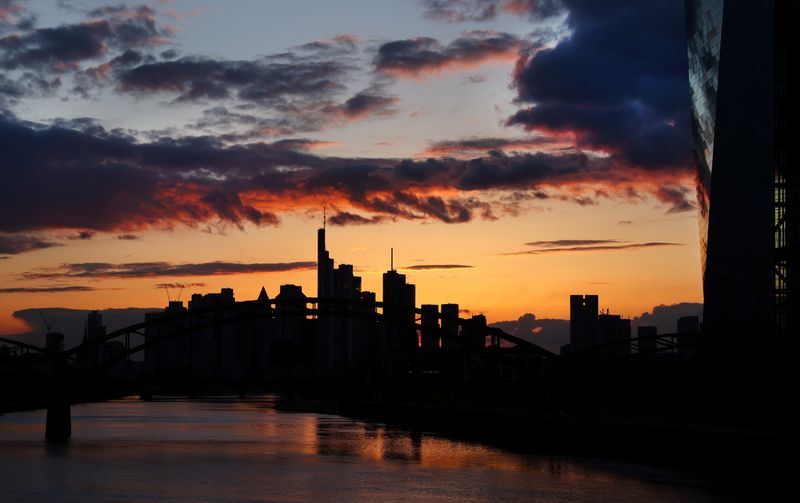(Refiles to fix garbled text)
By Michael Nienaber
BERLIN (Reuters) -German business morale deteriorated for the fifth month running in November as supply bottlenecks in manufacturing and a spike in coronavirus infections clouded the growth outlook for Europe's largest economy, a survey showed on Wednesday.
The Ifo institute said its business climate index fell to 96.5 from 97.7 in October. A Reuters poll of analysts had pointed to a November reading of 96.6.
"Supply bottlenecks and the fourth wave of the coronavirus are challenging German companies," Ifo President Clemens Fuest said.
Company executives were less satisfied with their current business situation and their expectations for the next six months were more pessimistic, the survey showed.
Despite record high orders, German carmakers and other manufacturers are forced to scale back production due to a lack of raw materials and intermediate goods such as microchips.
"Industrial production is suffering from the shortage of materials, and with the brutal fourth coronavirus wave, a well-known stress factor for the service sector is now being added," VP Bank analyst Thomas Gitzel said.
Gitzel said all signs were now pointing to a decline in overall economic output in the final quarter of this year.
Ifo economist Klaus Wohlrabe was a bit less gloomy, saying the economy was set to stagnate in the fourth quarter as supply chain bottlenecks showed no sign of easing up.
Wohlrabe told Reuters that the hospitality and tourism sectors were facing a tough few months ahead due to new restrictions across the country to stop the spike in COVID cases and protect hospitals from reaching capacity limits.
The German central bank warned on Monday that the economy could stagnate in the final quarter of this year as a lack of goods and labour as well as new restrictions to fight the pandemic might put an end to its fragile recovery.
The Ifo figures contrasted with a purchasing manager survey which had suggested on Tuesday that growth in Germany's private sector picked up slightly in November despite persistent supply bottlenecks and unusually high inflation.

Ralf Umlauf, an economist with Helaba bank, said Germany seemed to be hit harder by the supply bottlenecks than neighbouring France where business morale improved in November.
The grim outlook would be viewed by the European Central Bank as a confirmation of its cautious stance to leave as many policy options as possible on the table, regardless of rising inflation rates, Umlauf added.